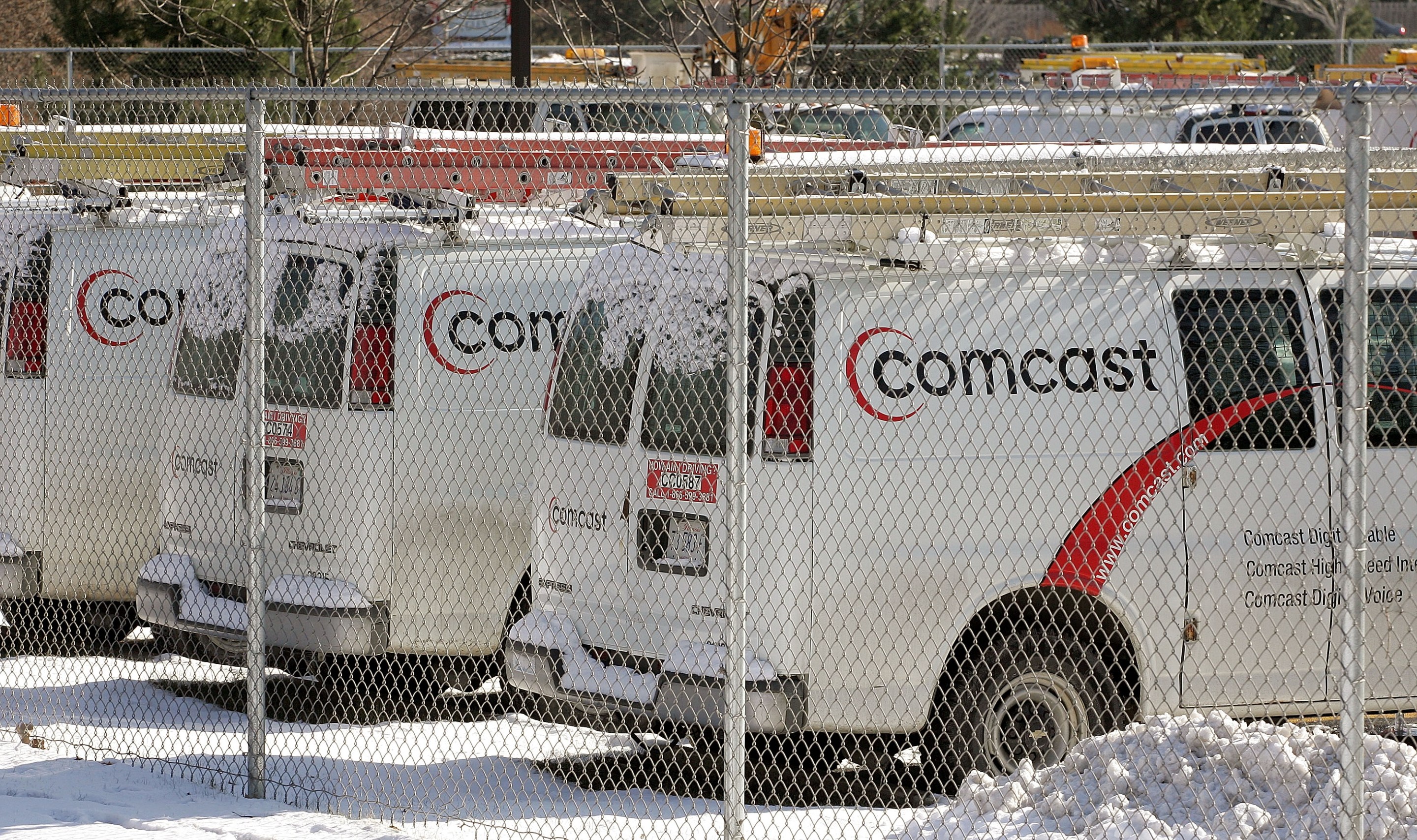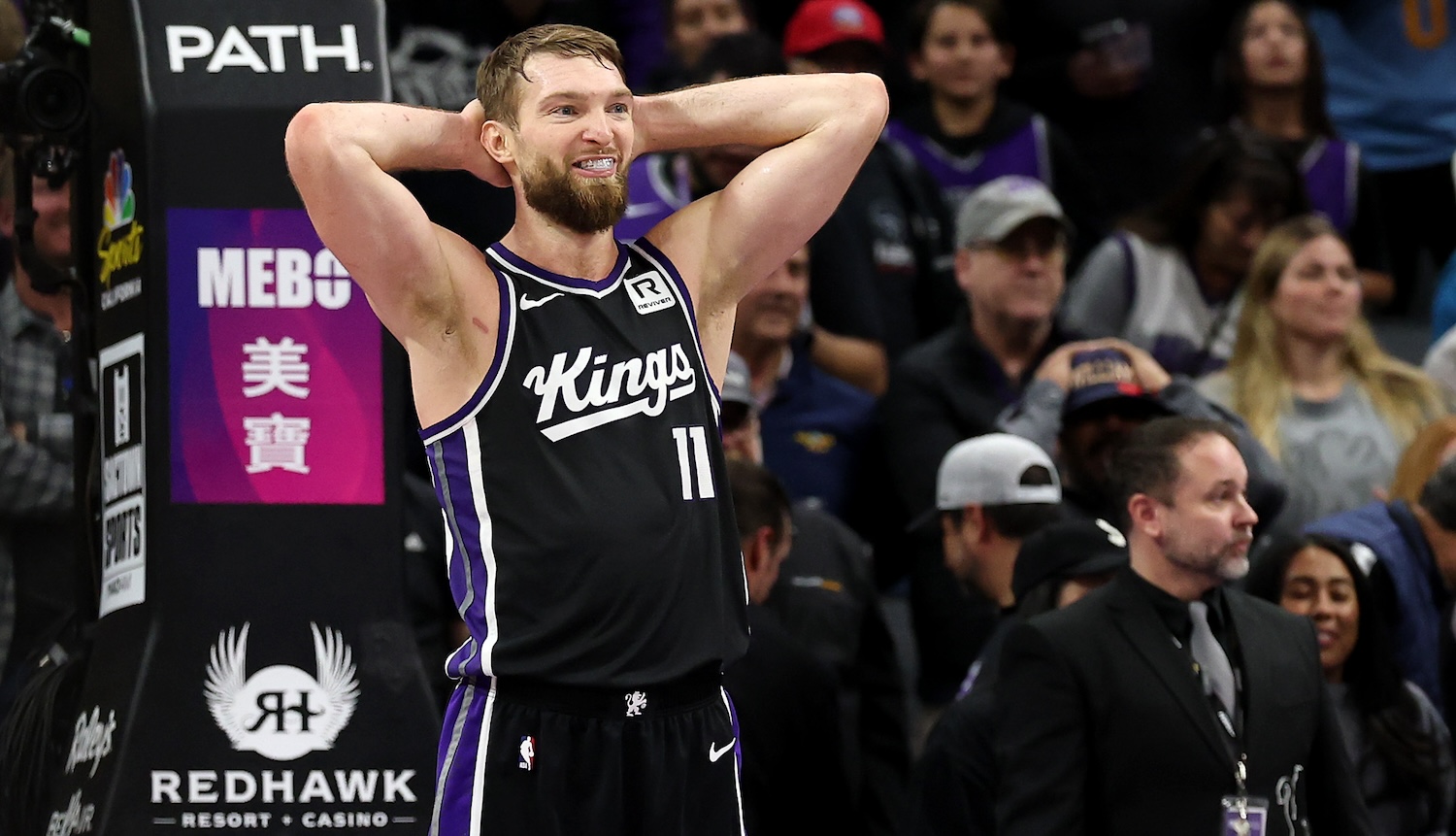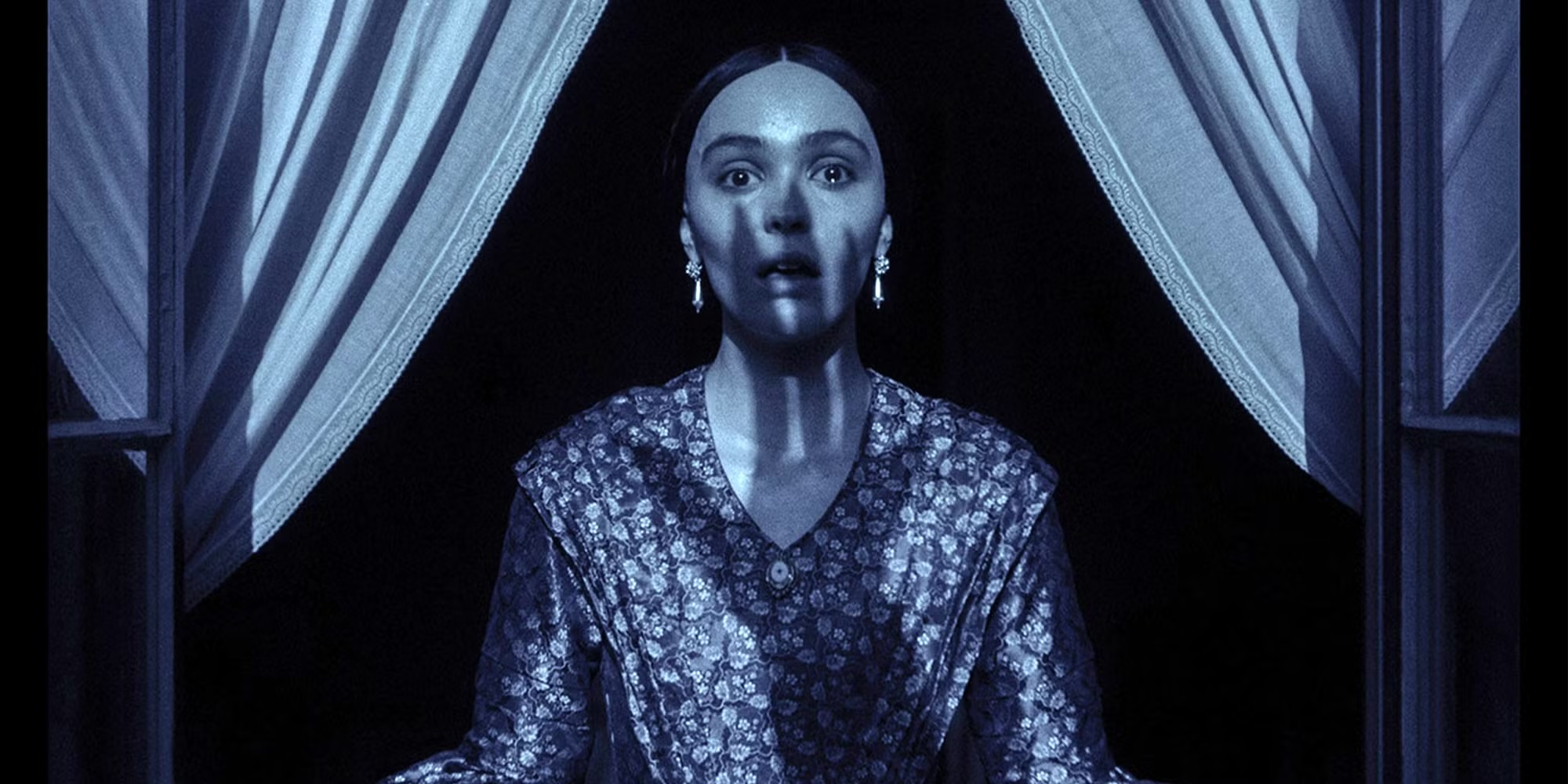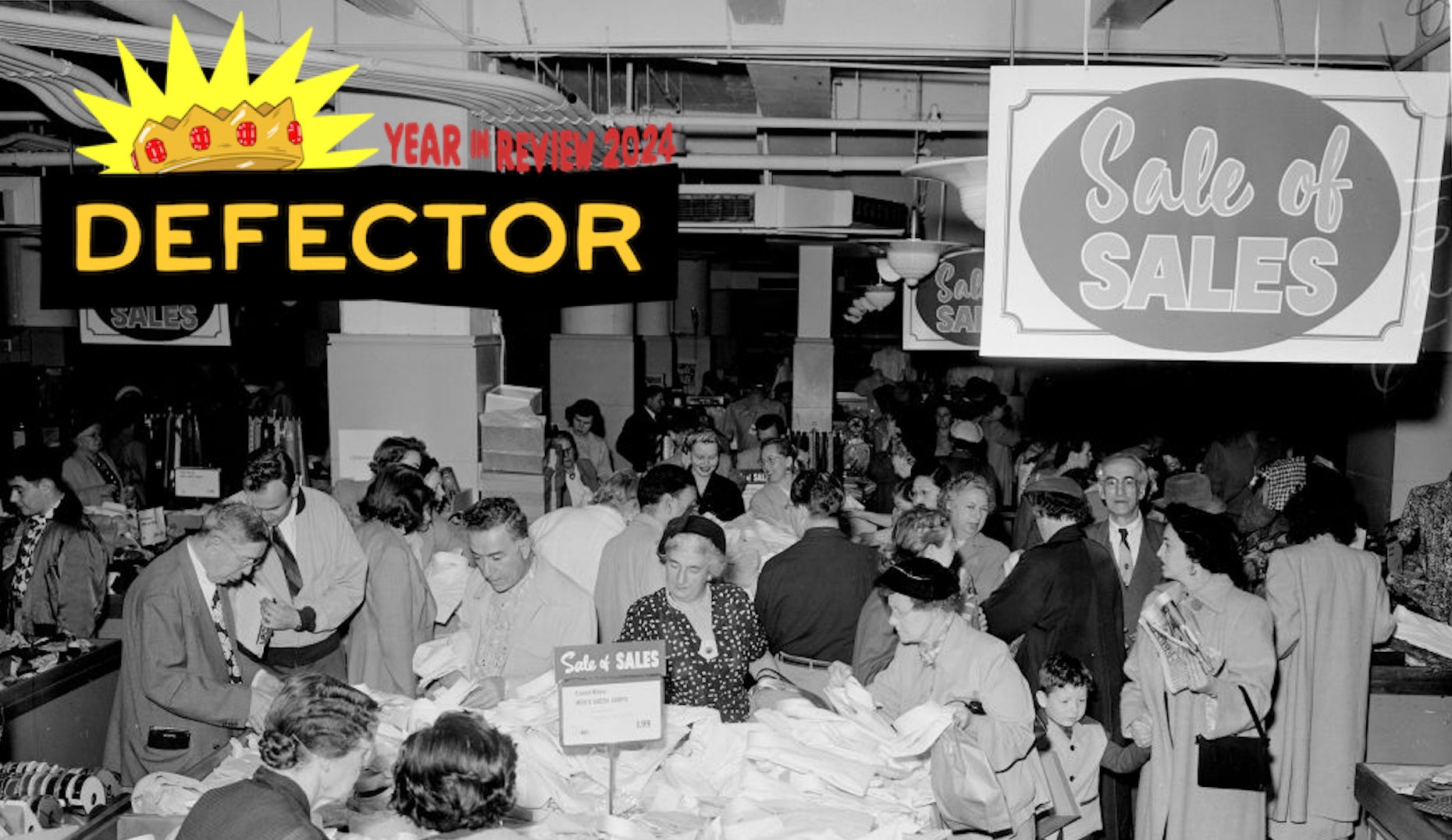Here's a little game to play. Deadline has a list of all the new and returning TV show premieres from April to June of this year. Take a look at it and tell me if you can find a show that fits all three of these criteria:
- It's new.
- It's fiction, i.e. not reality or a docuseries
- You can watch it with a basic cable package
Amid the dozens and dozens of brand new shows, I count exactly one—AMC's Dark Winds—that falls under all these pretty broad categories. And this season is no fluke either. Try last fall, too. It's obvious that streamers like Netflix, and Amazon, and Apple are making new scripted shows, but where are the others, the traditional TV powerhouses? Well, they're on streaming, too. Disney, which owns channels like Freeform and FX, is putting all its instantly recognizable Marvel and Star Wars stuff onto its own streaming service. NBC, which owns several including USA and Syfy, is premiering their new shows on Peacock. And Paramount Media Networks, which owns everything from Comedy Central to BET to MTV, also has a streaming service that seems to get first dibs on all it creates.
In short, even though we're living through a ridiculous TV boom that saw the number of scripted series reach an all-time high in 2021, streaming platforms are the only place to watch them. Cable, for its part, is becoming an afterthought for everything but live events, even as streaming grows and grows into a beast whose insatiable hunger for content must be satisfied. Just check out what's on cable tonight. It's a graveyard of mediocre mostly forgotten movies and reruns of sitcoms that peaked during the Bush administration, again and again and again. Six hours of The Office on Comedy Central. Independence Day: Resurgence (I have no memory of this movie), Ford v Ferrari, and then Independence Day: Resurgence again are programmed around exactly one new episode of Atlanta on FX. It's nothing but Two And A Half Men on, uh, The Independent Film Channel. It's bleak out there, in short, and it only gets bleaker when you zoom out.
Here's MTV schedule for the week of 04/25/2022!
— MTV Schedule (@MTVSchedule) April 25, 2022
Highlights:
Premiere of "Help! I'm In A Secret Relationship!" on Tuesday @ 9p#MTVSchedule2022 #week17 pic.twitter.com/tvaSxJRAbD
Cable is only going to become emptier and emptier, too, useful for live sports and not much else. "A thousand channels and nothing to watch" has been a gag since before anyone ever conceived of a "Netflix," but the evidence is becoming clearer that more and more channels will or already have totally stopped trying, most notably through the news this week that TNT and TBS would be completely cutting all new scripted programming in the midst of a gigantic merger between Warner and Discovery. That's presumably not just an effort to carve out time to show an eighth and ninth episode of The Big Bang Theory every day. This key reason, for instance, jumps out to me like an airing of Shrek on MTV:
TNT and TBS are pausing their scripted game under new parent company Warner Bros. Discovery, which CEO David Zaslav has promised will find $3 billion in cost savings across the new company in the post-merger era.
The playbook is pretty straightforward, and it begins with the unavoidable reality that cable is declining, particularly among young adults, even if 76.1 million subscribers remain. One way to approach the situation would be to continue competing for the 152.2 million eyeballs (give or take) still out there channel surfing, particularly because that number is so much higher than what outlets like Paramount+ and Peacock are pulling in. This is not how the situation is being approached. Instead, the big conglomerates have uniformly tried to muscle in on the streaming game, running up absurd deficits while trying to create the standout new show that will not only bring back that lost cable audience, but also encourage the stragglers to pay an extra $5 or $10 monthly on top of their cable bill so they can watch Boss Nass: Origins.
One way to frame the dynamic would be to say that cable programming is being forgotten and ignored as a result, but I don't think that's quite accurate. This isn't a '91 Topps set passively collecting dust in the attic. The budget cuts in scripted cable are just as calculated as those big investments in streaming, and emblematic of a larger strategy being employed in industry from media to big-box retail. If you accept the declining audience as a given, and don't want to spend any effort trying to reverse the trend with anything like the cool shows that live on streaming, the laziest and cheapest route will likely be just as if not more profitable in the short term. Why not fill your channel's airtime with cheap, old programming instead of costly, risky new work, especially if the entirety of the business model is simply sitting back and collecting both the ad revenue and the cable subscription fees from the 76.1 million Americans who have not yet gotten around to cutting the cord. And then 70. And then 60. And then 50. And then you retire.
It's a tried and true plan at this point: Degrade the product faster than the paying customers can leave, and profit off the difference. And maybe you don't mind all that much! Perhaps you long ago cut the cord, or you genuinely like knowing that you can always press a button and find an episode of Parks And Recreation to put on while you cook dinner. I understand that cable TV is not exactly the most sympathetic tragic hero, and it doesn't harm the community when IFC airs Horrible Bosses 2 all weekend long.
But this corporate mindset will affect you elsewhere, whether it's on TV, or in the electronics store that's pivoting to scammy CBD products, or in the local newspaper that's running nothing but AP copy because it doesn't want to pay its own journalists. There's still a great deal of money to be made in making things worse. And until cable truly becomes as unused and passé as phone booths, that banal negligence seems to be the consensus path forward.





